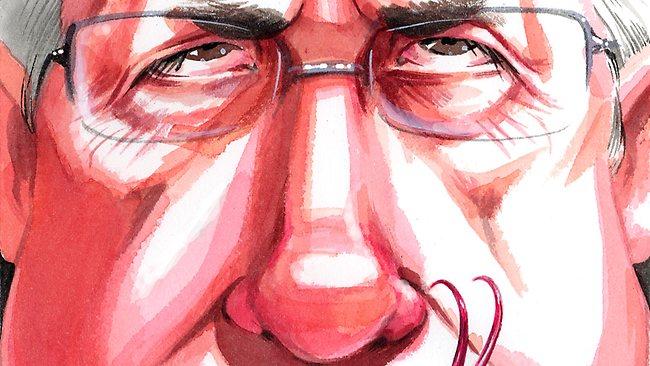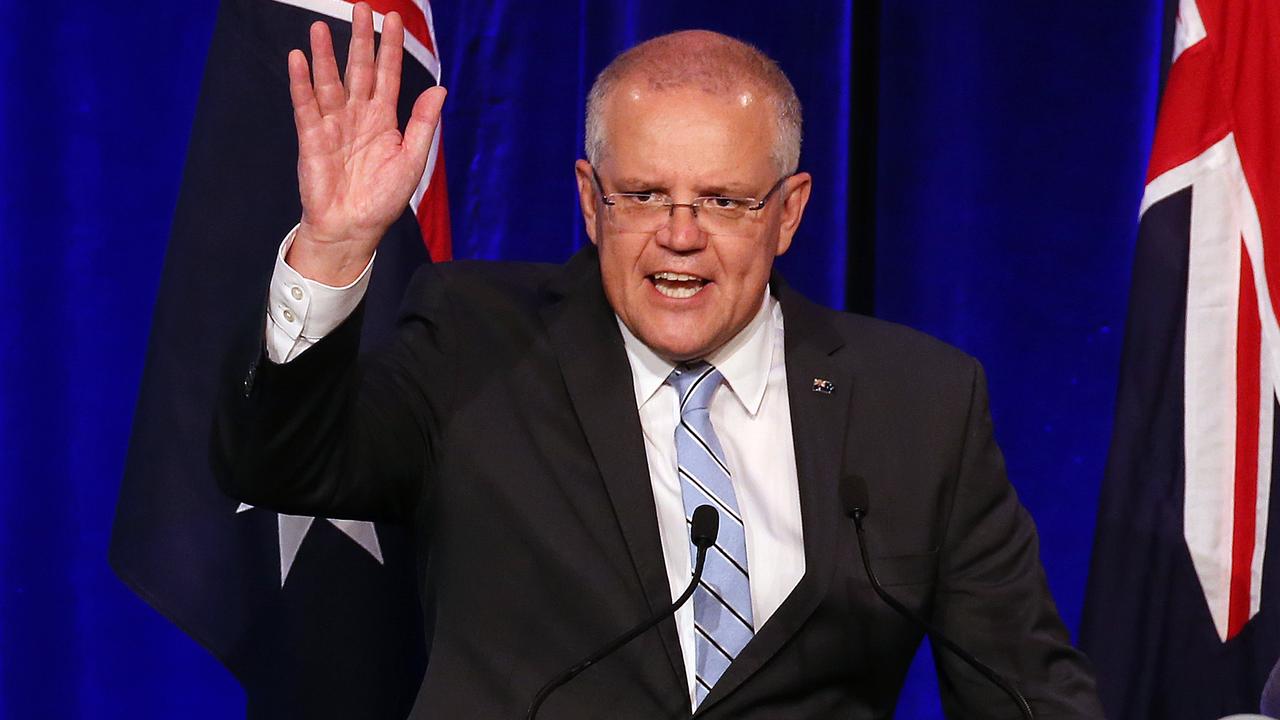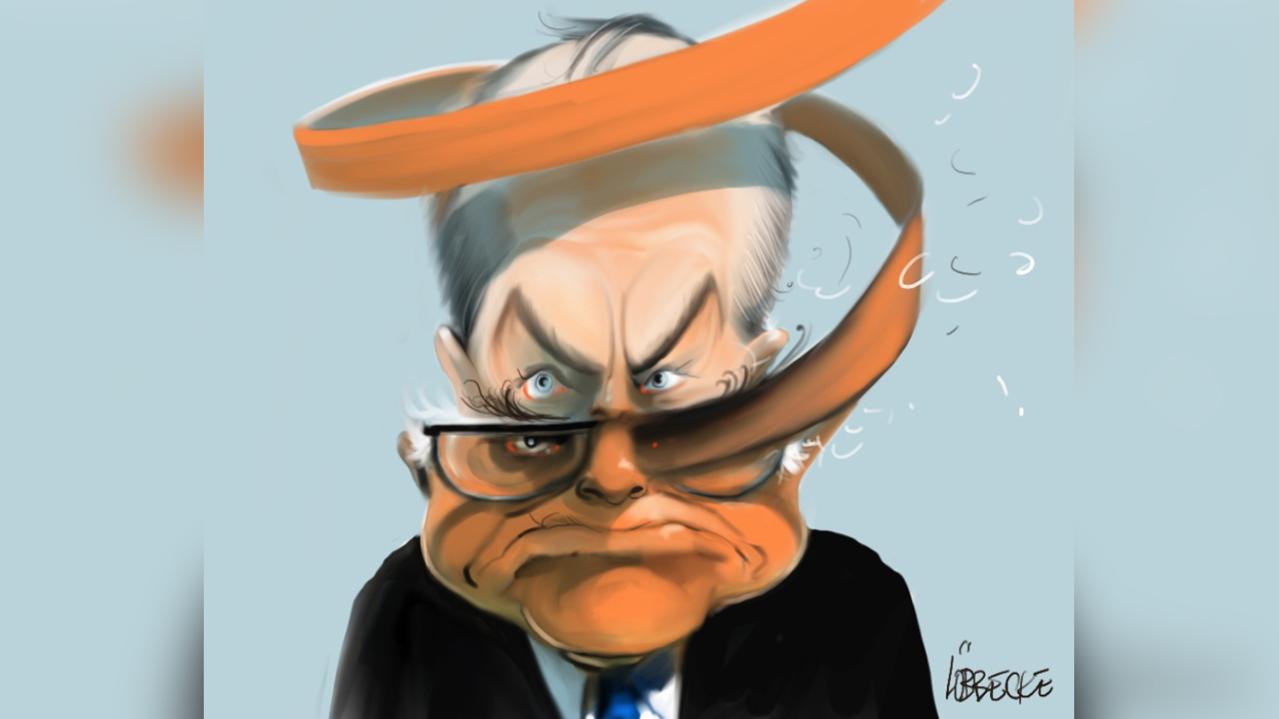Swan a repeat offender in art of political backflip

IF there is one political leader in this country who commands attention it is Wayne Swan. When he speaks, you listen, because the opposite of what the Treasurer says is bound to eventuate.
On Thursday Swan batted away questions about leadership rumblings by saying: "Those reports aren't worth the paper they are written on. We seem to get them all the time, they're not true."
Swan would have been better off pleading the fifth and not answering the question.
On June 16, 2010, Swan was asked a similar question about Kevin Rudd's leadership amid rumours that Julia Gillard might challenge the first-term prime minister: "Oh come on, let's not over-read all these sort of things. There is so much overblown commentary around at the moment, seriously."
Seven days later Rudd was gone, overthrown in an unprecedented coup. Swan delivered the Australian Workers Union votes for Gillard.
Rudd supporters like to tell the story of the former PM going to see Swan to confirm he still had his support in the weeks leading up to the challenge, as media speculation was rife.
Swan apparently told Rudd he had his "absolute" support.
After the delegation and the prospective challenger Gillard had all gone to see Rudd on June 23, Rudd again contacted Swan, only to be told that the Treasurer was now backing Gillard. That was the moment Rudd knew he was done for.
Swan's forceful insistences - followed soon enough by a shift in stance - are emblematic of why the political class in this country has lost so much public respect in recent years. Swan is far from the only offender, it has to be said, but he is one of the worst.
And it's not just in the moveable world of political strategising where Swan performs the most contortions. Policy backflips are also aplenty.
With a Thatcherite tone during the original mining tax debate when Rudd was prime minister, Swan boldly declared he was not for turning. He had read through then Treasury secretary Ken Henry's blueprint for taxation reform during a summer surfing holiday with the family, after receiving the lengthy report in December 2009.
Swan concluded the resource super-profits tax was too important a reform not to be embraced in its entirety. Sure, the Treasurer wasn't sold on delivering in full the associated cuts to company taxes and so forth that Henry included in his review. And rather than abolishing royalties - again as Henry recommended - which would have required negotiations with the states, Swan opted instead for the far messier option of rebating them.
But he was committed to taxing the miners as Henry had outlined. After all, the budget bottom line needed the revenue.
I didn't know the Treasurer or his office very well at that time, but I was convinced by their collective passions (if not the policy itself) that when it came to the RSPT Swan was not for turning.
Neither was Rudd, who backed his Treasurer and let him do most of the running when it came to selling the new mining tax (hardly a job well done).
When the debate heated up, however, Swan's policy conviction was replaced by political pragmatism. Despite a June 21, 2010, declaration by Swan that the RSPT was a "critical reform", just days later he was party to junking the tax after leaving Rudd isolated.
The mining tax had damaged Rudd in the eyes of business leaders and among voters. Gillard challenged Rudd (with Swan's backing) and immediately moved to significantly adjust the RSPT, turning it into what became the minerals resource rent tax.
Quite extraordinarily Swan, Gillard and a small circle of their political advisers met the big three miners (BHP, Rio Tinto and Xstrata) in a closed room to nut out a deal, which became the MRRT, an outcome that only this week Henry questioned the worth of.
And why wouldn't he? The revenue streams from the MRRT are limited and highly volatile, yet the government has used what it claims the tax will earn to fund the kind of rising costs to the budget that threaten its long-term structural underpinnings.
Swan was not only in the room when the dirty deal with the big three miners was done.
For his lack of policy conviction Swan was rewarded with the deputy prime ministership when Rudd was cast aside. If only promotion on the back of a lack of conviction in the real world were so easily achievable.
Backflipping on how best to tax minerals certainly wasn't the first time that Swan has boldly declared in one direction before running the other way. He did it over emissions trading.
It was Swan and Gillard (there is a pattern developing here when it comes to poor decision-making) who talked Rudd out of standing by the ETS when the going got tough. That was despite, on September 22, 2009, Swan saying: "It's vital - vital for our national economy that this (ETS) is passed as soon as we possibly can." A few months later, and Swan and Gillard were hard at it trying to convince Rudd to dump the ETS for base political calculations.
They eventually succeeded in convincing Rudd to delay it, a move that sparked Rudd's polling collapse (to levels well above where Labor and the PM are at now), which in turn sparked Gillard's challenge.
Oh, the irony. And Team Gillard now wonders why voters find it so hard to understand how she can argue that pricing carbon is a matter of conviction for her, and cost of living pressures on the back of international economic uncertainty are no reason to make adjustments to the carbon pricing legislation, which has been passed into law.
The final and without a doubt most sickening example of Swan back-flipping is in relation to his attitude towards Rudd.
Maybe the Treasurer always privately disliked Rudd; that is certainly what those close to him claim. If that is true it only adds to Swan's disgrace.
He spent 3 1/2 years telling Australians what an honourable, worthy and competent prime ministerial candidate Rudd was.
In opposition and in government, with hand on heart, Swan fronted the media and argued for Rudd. Yet in February this year Swan released a statement describing Rudd as never having had "Labor values", and the Treasurer went on to say that his former prime minister had "great weaknesses" and was "dysfunctional".
Swan was part of a conga line of ministers (Mark Latham's phrase, but there is no better descriptor) who made similarly slanderous observations. The polls tell us that voters just don't care what these underwhelming ministers who have failed to live up to expectations think about their former boss.
My first-hand observation is that Rudd is a difficult personality, but I suspect so were a raft of other former PMs. It takes a certain type of individual to seek such high office, just as it takes a certain kind of intestinal fortitude to be a successful minister. Swan has shown time and time again - in terms of policy and politics - that he doesn't have it.
History will be Swan's harshest critic.
Peter van Onselen is a Winthrop professor at the University of Western Australia.


